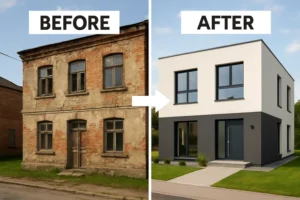The plumbing profession is an essential part of modern society. Without skilled plumbers to install, maintain, and repair water, drainage, heating, and cooling systems in homes and businesses, we would not be able to enjoy the comforts and conveniences that we often take for granted. Becoming a licensed plumber requires dedication and hard work, but it can lead to a stable and rewarding career. So how long does it take to go from plumbing novice to licensed professional?
Education and Training Requirements
The first step to pursuing a plumbing career is making sure you have the requisite basic education. A high school diploma or equivalent is required for any formal plumbing training program. Many aspiring plumbers get a head start by taking courses related to construction, math, science, and mechanical principles while still in high school.
Once a high school diploma or GED is obtained, there are two main educational paths to acquiring the technical skills and experience needed to become a licensed plumber: completing a formal apprenticeship program or attending trade school and receiving on-the-job training.
Apprenticeship programs usually last 4-5 years and include a combination of paid on-the-job training and classroom instruction. Apprentices typically complete at least 2,000 hours of hands-on training each year working under the supervision of a master plumber. This gives them the opportunity to gain skills in fixture installation, pipe system design, inspection and troubleshooting, equipment operation, and safety procedures.
In addition to hands-on training, apprentices take classroom courses covering topics like plumbing codes and regulations, safety practices, blueprint reading, math, physics, chemistry, and mechanics. They learn the theoretical foundations and scientific principles that underlie modern plumbing systems. Many joint training committees oversee apprenticeship programs and ensure they provide well-rounded experiences.
Licensing and Certifications
To work independently, plumbers must obtain the proper licenses and certifications, which typically requires 2-5 years of on-the-job experience as well as passing an examination. However, licensing requirements can vary quite a bit depending on the state. Some have strict rules, while others are more relaxed.
Most states require plumbers to obtain a license after a 2 to 5 year apprenticeship working under a master plumber. This hands-on experience is usually a prerequisite for being approved to take the licensing exam. Common licensing exams include tests administered by the state plumbing governing body, the Master Plumbers’ Licensing Exam, or the Uniform Plumbing Code Exam. These exams cover essential plumbing principles like piping, fittings, equipment, systems, codes, and installation methods. Plumbers must pass with a satisfactory score to demonstrate their knowledge.
Some states maintain reciprocity agreements with other states, allowing plumbers licensed in one state to transfer their credentials more easily when moving. However, the requirements for reciprocity vary.
There are a few different paths a prospective plumber can take to attain state licensing:
- Completing a formal apprenticeship program registered with the state’s department of labor.
- Accumulating a specific number of years of experience working under a licensed master plumber.
- A combination of trade school courses and several years of supervised on-the-job training.
- Working as a journeyman plumber under a master plumber.
Becoming a licensed plumber usually takes five to seven years. However, there are different paths that you can take to get a plumbing license.
Certain advanced specializations like medical gas piping or solar thermal systems may require additional certifications beyond the state’s standard plumbing license. Voluntary certification is also available through associations like the American Society of Plumbing Engineers or the Plumbing-Heating-Cooling Contractors Association.
Overall, a combination of hands-on training and classroom education aimed at passing the state licensing exam is the primary path to becoming a professional licensed plumber. The process takes anywhere from 2-5 years depending on your state’s specific requirements.
Career Progression
The career ladder in the plumbing profession usually consists of three main job titles – apprentice, journeyman, and master. Each role represents a different level of experience and responsibility.
After completing an initial training program, plumbers enter the field as apprentices. They work under direct supervision assisting with basic tasks like installing fixtures and making repairs. As they gain more hands-on experience, apprentice plumbers take on more complex tasks and projects. They must complete a minimum number of hours, often at least 2 years, before advancing.
The next level is journeyman plumber. Journeymen have demonstrated competency in the field working semi-independently, but not without guidance. To become a journeyman, plumbers typically need at least 2 years of experience working as an apprentice. Journeymen have more skills like diagnosing issues, designing systems, and supervising others. They can work without supervision but still follow instructions from master plumbers who hold the business licenses.
Finally, a plumber can advance to the level of master plumber, but it typically requires 7-10 years of total training and experience. In addition to superior skills, master plumbers know how to set up and operate an independent plumbing business. They handle complex projects, supervise journeymen and apprentices, and maintain licensing and insurance. Becoming a master plumber usually involves passing an advanced licensing exam beyond the standard journeyman test.
This kind of career ladder allows plumbers to continually build on their skills and move into roles with greater responsibility. It provides a clear path for advancement in the field. Proper certification and licensing is required at each step. Ambitious plumbers can work their way up to master status through dedication and experience.
Job Outlook and Salary
Employment for plumbers is projected to grow 16 percent from 2020 to 2030, according to the U.S. Bureau of Labor Statistics – much faster than the average for all occupations. Several factors contribute to this promising job growth:
- Population growth will drive construction of new homes, businesses, and other complexes requiring plumbing systems.
- Older buildings and infrastructure will need upgraded plumbing systems, driving renovation and replacement work.
- Greater emphasis on water efficiency, pollution control, and energy conservation will spur demand for new plumbing methods.
- Experienced plumbers retiring will create openings.
This means those entering the profession now have good job stability and opportunities for finding work.
The median annual salary for plumbers nationwide was $59,880 in 2021. Those working for large corporations or specialty contractors tended to earn the highest wages. Plumbers with many years of experience and master level licensing can earn over $80,000 per year.
Since plumbers often get paid an hourly rate or stipulated amount per project, the total income can vary depending on hours worked. But the demand for plumbing expertise allows most professionals to earn good, steady incomes over the course of a career.
Work Environment and Skills
Plumbers hold an indispensable role in the construction and facilities maintenance fields. As a result, they work in a wide variety of environments. One week could be spent doing installations in new homes under construction, while the next could be dedicated to repairing pipes in a commercial high-rise.
Many plumbers primarily work on new building projects and renovations. Others specialize in service and repairs in existing residential, commercial, or industrial properties. Some larger plumbing companies have technicians on call 24 hours a day to handle emergency issues. Self-employed master plumbers often have a mobile fleet ready to tackle problems at odd hours.
Regardless of specialization, plumbers must be able to demonstrate certain core skills:
- Math skills – Plumbers regularly use formulas and equations when designing systems and ensuring proper water flow and drainage.
- Problem-solving – Identifying and addressing malfunctions quickly is crucial. Plumbers must diagnose issues based on expertise.
- Mechanical aptitude – The ability to adeptly work with tools, equipment, and systems comes naturally to plumbers. Basic engineering skills are also helpful.
- Customer service – Plumbers work closely with clients and must maintain a courteous, professional manner at all times. Communication and people skills are important.
- Business skills – Self-employed master plumbers also need sales and invoicing knowledge. Management abilities are essential for supervising apprentices and journeymen.
Successful plumbers usually have solid math and problem-solving skills and a high mechanical aptitude.
The combination of technical expertise and soft skills allows plumbers to thrive in a hands-on service profession. No two workdays are exactly the same.
Conclusion
Becoming a licensed plumber is an accessible way to obtain a stable construction career – but it does require commitment. While the time investment is substantial, it can pay off in the form of consistent employment and an average income of nearly $60,000 a year.
Formal apprenticeship programs with on-the-job training take 4-5 years plus an additional few years of experience to qualify for licensing. Some states mandate a master plumber sponsorship. Others allow school courses to substitute for portions of the apprenticeship. Total training time ranges from 5-7 years on average depending on state guidelines.
It is also crucial for plumbers to cultivate universal abilities like customer service, math, and problem-solving. Combining book smarts and street smarts makes plumbers more effective throughout their career. With the right combination of education and real-world experience, an aspiring tradesman can become a licensed, professional plumber equipped to succeed.
FAQs
1. What kind of education do you need to become a plumber?
While a high school diploma or equivalent is required, most plumbers receive technical training through a 4-5 year apprenticeship program that combines classroom instruction with on-the-job training. Some may attend trade schools for 1-2 years before entering an apprenticeship.
2. How long does it take to get licensed as a plumber?
It typically takes 2-5 years of apprenticeship training as well as passing an exam to get licensed as a journeyman plumber. Earning a master plumber license can take 7-10 total years of education and experience. Licensing requirements vary by state.
3. What does an apprenticeship involve?
Plumbing apprenticeships involve paid on-the-job training under a master plumber (about 2,000 hours per year) along with classroom courses in subjects like safety procedures, plumbing codes, math, and science. Apprentices start with basic tasks and progress to more complex projects.
4. What kind of tasks do plumbers perform?
Plumbers install, repair, and maintain water, drainage, heating, and cooling systems in homes, businesses, and other buildings. Their daily tasks involve working with pipes, fixtures, equipment, and related components.
5. How physically demanding is the work?
The plumbing trade is physically demanding, often requiring standing, bending, kneeling for long periods. Plumbers must have the strength and stamina to lift heavy equipment and materials. Work frequently occurs in cramped spaces or awkward positions.
6. Where do plumbers find work opportunities?
Plumbers work for plumbing contractors, mechanical companies, or facilities maintenance departments. Some plumbers are self-employed. There are stable job prospects in both new construction and service/repairs.
7. What is the job outlook for plumbers?
Employment for plumbers is projected to grow 16% from 2020-2030, much faster than average. Demand is driven by population growth, building renovations, and emphasis on water efficiency.
8. How much do plumbers earn?
Plumbers had a median annual salary of $59,880 in 2021. With experience, plumbers can earn over $80,000 per year. Master plumbers who own their business can make six figures.
9. Does a plumbing career involve continuous education?
Yes, plumbers must stay current with evolving building codes, system designs, and technology. Most states require licensed plumbers to fulfill annual continuing education requirements.
10. Why is licensing required for plumbers?
Licensing ensures plumbers have the knowledge and skills needed to work safely on complex systems that impact public health and safety. It also protects consumers from shoddy work.




